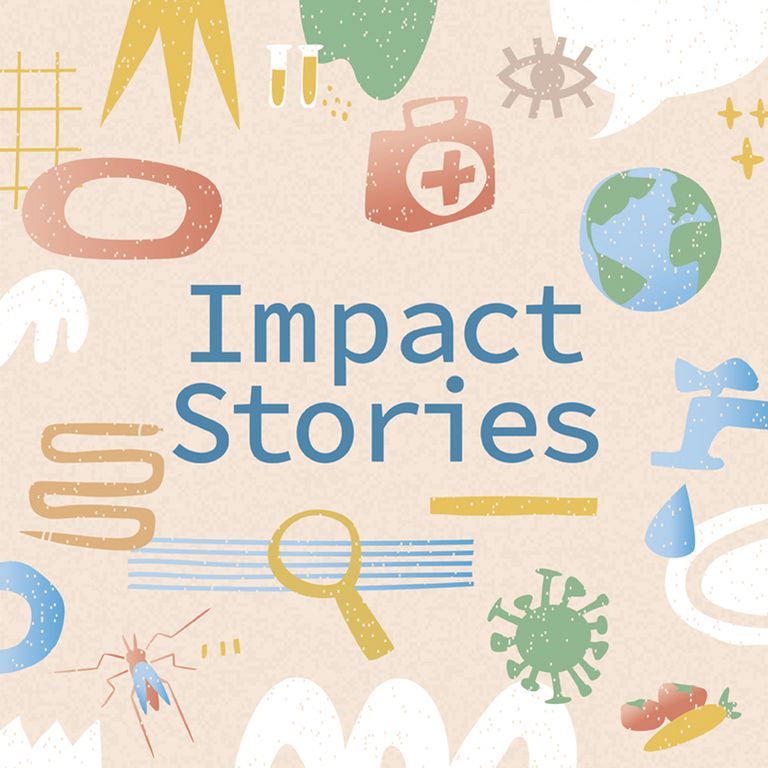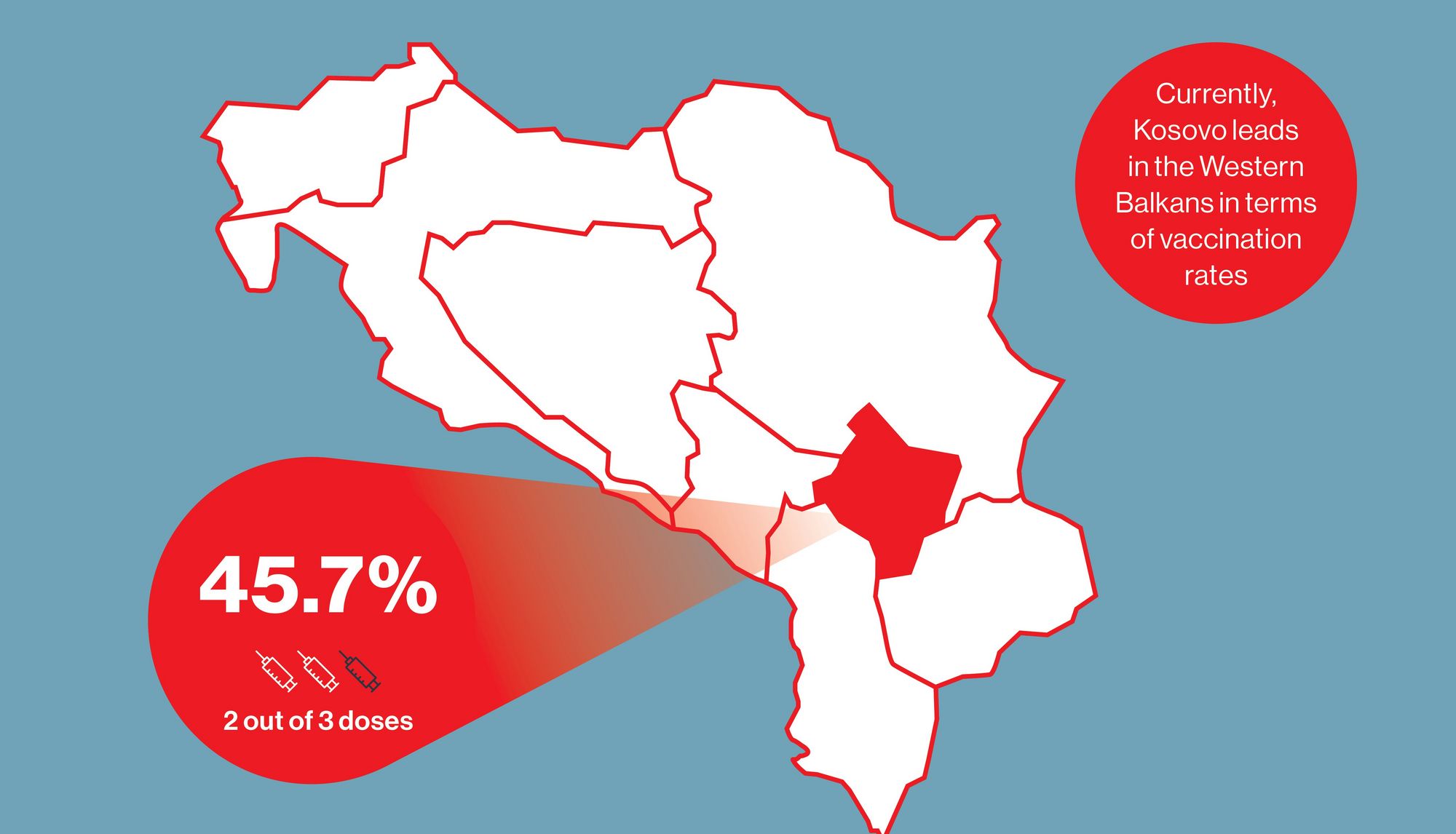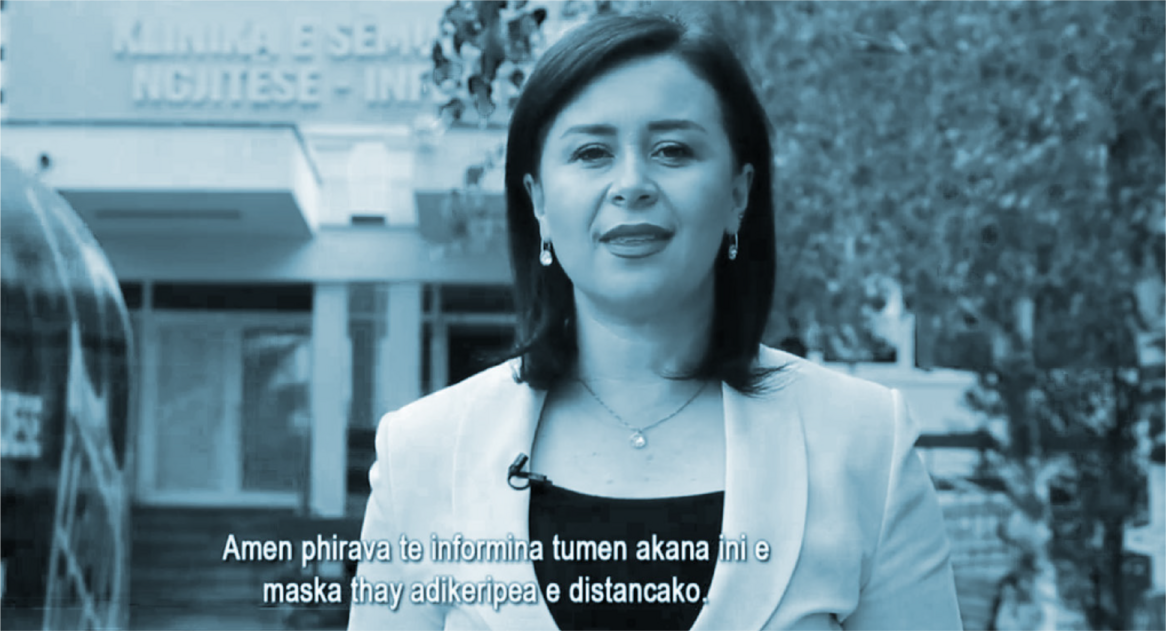

In Kosovo, as in many other places worldwide, the COVID-19 pandemic was accompanied by another contagious phenomenon, namely disinformation or fake news. Conspiracy theories around COVID-19 vaccines also met interest in Kosovo and the wider Balkan region.
Currently, Kosovo leads in the Western Balkans in terms of vaccination rates, as 45.7% of the population are vaccinated with 2 out of 3 doses. What has contributed to this comparatively higher vaccination rate?

Orchestrated by the Accessible Quality Healthcare (AQH) Project in the collaboration with the Ministry of Health, a working group composed of up to 18 experts from a range of disciplines, sectors, and institutions was quickly formed, including Ministry and AQH representatives, public health experts, family doctors and communication experts. The group designed communication campaigns informing about the risks of infection, promoted prevention measures and also addressed fake news. The Kosovo Minister of Health, reputable personalities, show-biz celebrities, ambassadors, doctors, nurses, renowned journalists, and other influencing personalities were the faces of these culturally congruent communication campaigns.

Engaging celebrities and influencers to amplify campaign messages
“Strategic messaging design, a well-planned course of action, and of course, determination and perseverance were all the ingredients that contributed to our success. We specifically tried to engage people that were influencers in their respective fields with strong communication skills, whether they were public health experts or singers. It was important that the population would listen to and trust these messengers.” said Zana Aqifi, Senior Communication Officer for the AQH Project in Kosovo.
"We tried to engage people that were influencers in their fields with strong communication skills, whether they were public health experts or singers."
AQH considered social media as one of the key channels to learn and understand people’s concerns and fears around COVID-19 as well as to transfer messages to the largest audience possible. Observing the evolution of discussion around COVID-19 in social media helped the AQH Project to adjust messages and address information gaps. In turn, up to 1 million people were reached through AQH and stakeholders’ social media posts.
What made the communication materials you have jointly created with AQH, so effective?
According to Faik Hoti, Director of Communication Department at Ministry of Health, several factors contributed to an effective communication: “Quality and relevance of the content, the method of execution, and the people featured. In addition, we used various platforms such as social media, TV, websites and call centers to ensure that the communication process was multitrack and effective. The COVID-19 working group was well organized and able to produce the right messages in a short time.”

TV spots in particular were used to reach the Kosovar population with accurate information and importantly also, to promote vaccine uptake: “The information campaigns, spots and posters that the Ministry of Health and AQH created on a regular basis were highly needed for our TV Station and helped us fight anti-vaxxing and conspiracy theories,” said Ermal Panduri, Director at RTV Dukagjini, Kosovo.